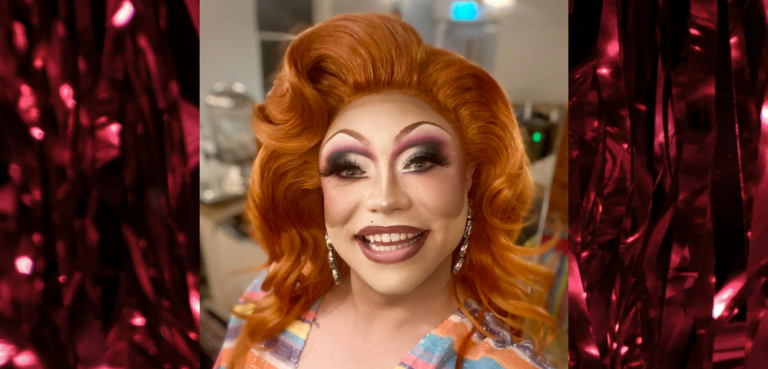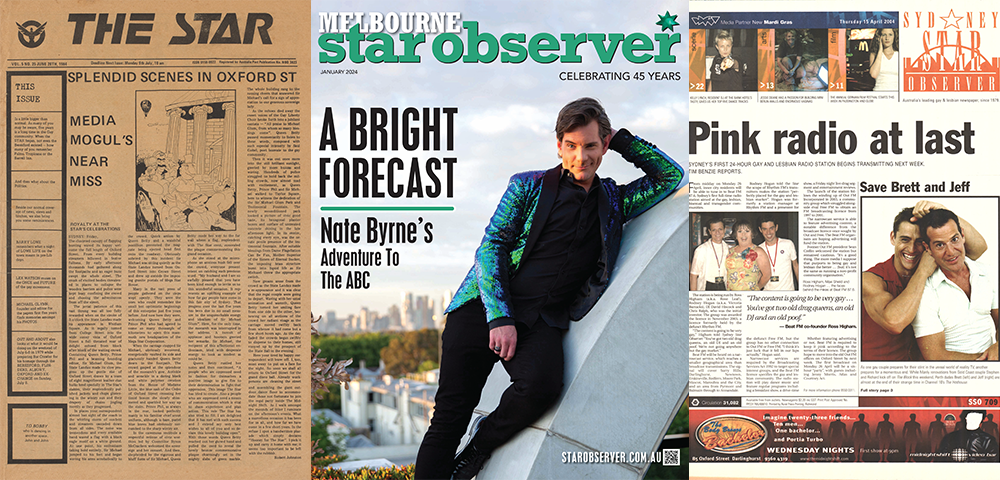
The Pinkwashing of Corporate Australia: for profit or pride?

DID you apply a rainbow filter to your profile picture to celebrate marriage equality in the US? I’m afraid you’re nothing but a piece of data to be analysed and used.
Does this make you feel a bit squeamish? Or is this an acceptable price to pay to show your pride? It’s not just us — companies are draping themselves in our rainbow flag, our symbol of pride, the banner we’ve used to unite us ever since we were cast aside to the fringe of society.
[showads ad=MREC]Pinkwashing is an act in which institutions co-opt LGBTI symbols and issues to present itself as gay-friendly, often as a means to distract from or disguise unethical behaviour.
The term has become synonymous with the Israeli government’s marketing of itself as a progressive, gay-friendly holiday destination while engaging in the apartheid of Palestinian people. Locally, we see the big four banks supporting LGBTI causes while also investing in fossil fuel projects and heavy-polluter projects.
Does one action outweigh the other? For an example, just because your bank shows pride in our rainbow community doesn’t mean you shouldn’t divest from them for investing in projects that contribute to climate change.
But how can a company show pride? It’s just a soulless moneymaking machine, right? It’s not a person? The battlefront for marriage equality in Australia reveals much about the state of gay liberation, gay identity and correspondingly the role and responsibilities of corporations that are rapidly outgrowing their role as money-making machines and spilling over into serving a role as citizen, political player and rainbow flag-bearer.
On May 29, 53 Australian corporations took out a full-page advertisement in The Australian newspaper with Australian Marriage Equality and “came out” in support for marriage equality, followed up by advertisements through other outlets. This unprecedented show of support for a highly-politicised and divisive issue in Australia in one of our most conservative and well-circulated papers was viewed largely as a moment of solidarity for corporate Australia and the marriage equality movement.
However, hidden behind the positive message and progressive call-to-action, there were other messages that have great implications for corporate strategy and the LGBTI community. This was a veiled public attack on politicians and political parties that oppose marriage equality and by association, those Australians that oppose the issue. It was a populist statement used as an affordable publicity opportunity and it was an easy grab for the lucrative “pink dollar”. The influence exerted in this case shows it is probably better to have them with us rather than against us.
It may be seen as a progressive and political move, but really it’s a safe move to show support our community, as opposed to before when we were cast aside. It’s our popular moment and everyone wants to sit with us.
The introduction of marriage equality in Ireland and the US has pushed this issue to the forefront of social policy reform in Australia after a decade of effort and inaction. Current polls put support amongst the broader population at around 70 per cent. Individuals, religious leaders, politicians and businesses have all come out in support of this reform. However, why won’t corporate Australia speak on other politicised but very important issues, such as asylum seekers and climate change?
We’re a comparably safe topic to talk about, as long as we don’t damage their brand marching up Oxford St or down Fitzroy St with my jockstrap on.
Pinkwashing is often adopted to meet internal corporate social responsibility requirements (the diversity “tick-box” on the annual report), to attract human capital and to increase sales and brand image and loyalty.
At the end of the day, does supporting a safe and popular issue help your financial performance and is that the main contributing factor — or is there a degree of altruism involved? Do we see these corporations demonstrating support for that community in more material ways? Gay pride events, LGBTI charities and non-profits have relied on support from corporate Australia in the past, so we should consider if our equal rights with marriage should also be bankrolled.
Feeling co-opted yet? Does the corporation have any role to use our rights and pride whether it benefits us or not? As a consumer group, we’ve always been able to spot a fake when we see one — just because a local store displays a rainbow flag in their window doesn’t mean they foster a homo-accepting culture in the workplace, nor do we accept a large corporation sponsoring our queer events without donating to our charities.
We may be getting pinkwashed, but our “pink dollar” is our biggest bargaining chip. Let’s use it wisely and to support broader issues now that we’ve got a seat at the table.
An important question we need to ask ourselves is whether or not we’re okay with this. Should we have a price? It’s better to have them on our side than against us, right? Corporate citizenship and power is only increasing, so riding that wave can certainly benefit us — but the implications for those of us in the community that do not wish to prescribe to the new paradigm may miss the wave.
Stop the pinkwash or tickle me pink? Our community has some soul-searching to do and Australian organisations need to make sure they listen.
Steven Spencer is an activist in the field of sexual health who has just launched a blog on sexual health and community wellbeing called Mother Superior: www.mothersuperior.info. Follow him on Twitter: @StevenStorven
[showads ad=FOOT]










Perfect case in point
Tim Wilson
Assimilate to the far-right or DIE
No thanks
I’m starting to feel pretty disillusioned… As usual the white, able bodied, neurotypical, wealthy cis male are shooting to the top while the rest of us are staying well at the bottom. I don’t blame the queer radicals and the midsummer parade. The fact that cis men are gay does not cancel their horrible ability to oppress those who don’t conform to their clean cult respectiability politics.
The former California Governor (shown in the picture) actually is not gay-friendly at all! He actually VETOED the same-sex marriage bills in both 2005 and in 2007!